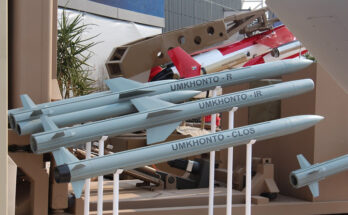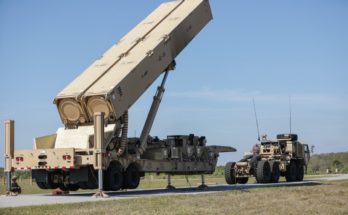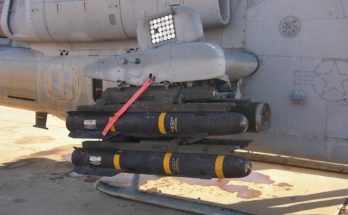Saudi Arabia will receive new AGM-84 Standoff Land Attack Missile – Expanded Response (SLAM-ER) systems.
In an announcement on April 10, 2018, the U.S. Department of Defense said it had awarded a $64.1 million contract to Boeing for the restart of SLAM-ER production lines. The restart is being conducted in support of Saudi Arabia.
The contract also covers “the redesign of obsolete, nearly obsolete, or uneconomical parts to support production and improve future sustainment.” The U.S. estimated that work on the contract would be completed some time in less than a year, in March 2019.
In October 2013, the U.S. approved the potential sale of 650 AGM-84H SLAM-ER systems, along with nearly 1,000 AGM-154C and 400 AGM-84L missiles. The approval included air-launched ordnance and supporting equipment, and carried a total value of $6.8 billion.
Regarding the 2013 approval, the State Department said, “This proposed sale will improve Saudi Arabia’s capability to meet current and future regional threats. These munitions will strengthen the effectiveness and interoperability of the air force of a potential coalition partner, enhancing the coalition operation.”
The weapons will equip Saudi Arabia’s F-15SAs.
The Saudi Kingdom has frequently come under fire from critics over its military campaign in Yemen, where Saudi aircraft are accused of involvement in war crimes. Riyadh rejects the allegations. In addition to criticizing the Kingdom, human rights activists have targeted Saudi Arabia’s arms suppliers, especially the U.S., and sought to prevent the sale of weapons to the Saudi military.
In 2016, outgoing U.S. President Barack Obama unilaterally halted the sale of precision munitions to Saudi Arabia. However, this ban was lifted months later by his successor, President Donald Trump.
Military markets analyst, covering Eurasia, Middle East, and Africa.




